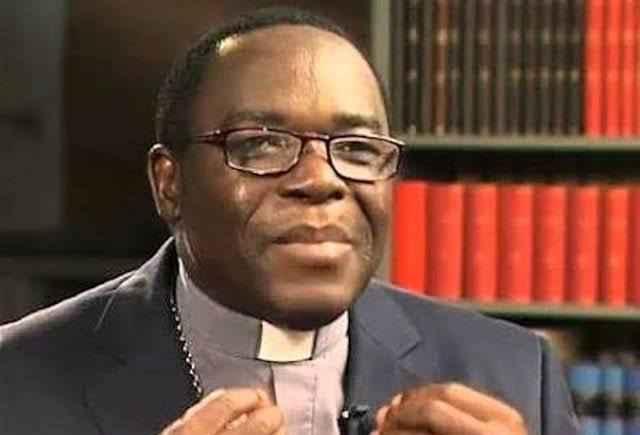Bishop Matthew Hassan Kukah – Biography, Net Worth, And Ministry Highlights
Few Nigerians have wielded as much moral and intellectual influence as Bishop Matthew Hassan Kukah, the outspoken Catholic Bishop of Sokoto. Renowned for blending rigorous scholarship with fearless advocacy, he has become a symbol of hope, justice, and interfaith dialogue in a challenging national context.
This post explores his journey—from his roots in Kaduna to the hallowed halls of Oxford and Harvard—his transformative leadership in the Sokoto Diocese, and his impact on Nigeria’s civic, academic, and spiritual life.
Early Life & Academic Journey
Born on August 31, 1952 in Anchuna, Zangon Kataf region, Kaduna State, Kukah faced early life hardships. It was his grandmother who courageously paid the modest entry fee to St. Joseph’s Minor Seminary Zaria—an investment that sparked his extraordinary journey into priesthood and leadership
He studied philosophy and theology at St. Augustine’s Major Seminary, Jos, and was ordained a Catholic priest in 1976 at age 24
His intellectual pursuit was relentless:
Diploma in Religious Studies – University of Ibadan
Bachelor of Divinity – Pontifical Urban University, Rome (1976)
Master’s in Peace Studies – University of Bradford, UK (1980)
PhD – SOAS, University of London (1990)
Rhodes Scholar at Oxford (2001–2003)
Mason Fellow in Public Policy at Harvard’s Kennedy School (2003–2004)
Ministry and Leadership Roles
Early Church Responsibilities
Kukah served as Dean of Students and Rector at seminaries before ascending to national leadership:
Deputy Secretary-General and then Secretary-General of the Catholic Bishops’ Conference of Nigeria (CBCN) (1990–2000)
Chief organizer of nationwide religious guidance through church-state interfaces
Civic Engagement & Reforms
Bishop Kukah engaged deeply in civic reform:
Member of the Oputa Panel (1999–2001) investigating human rights abuses
Secretary of the National Political Reform Conference (2005)
Chair of the Ogoni-Shell Reconciliation Committee (2005 onward)
Member of Nigeria’s Electoral Reform Committee (2007–2009)
Episcopal Leadership
In 2011, Pope Benedict XVI appointed him Bishop of Sokoto Diocese, a significant role covering majority-Muslim Northwest Nigeria
Under his leadership, the diocese revived churches and established new parishes in Sokoto, Kebbi, Zamfara, and Katsina States
Interfaith & Policy Influence
Bishop Kukah chairs Nigeria’s and West Africa’s committees on interreligious dialogue and serves on the Pontifical Council for Interreligious Dialogue
He also established the Kukah Centre, a public policy think tank promoting ethical leadership and national cohesion
In 2020, Pope Francis appointed him to the Dicastery on Integral Human Development, reflecting his global stature
Books, Writing & Public Engagement
Bishop Kukah is a prolific author, commentator, and public intellectual. His notable works include:
Religion, Politics and Power in Northern Nigeria (1992)
Religious Militancy & Self-Assertion (1996)
Democracy and Civil Society in Nigeria (1998)
Witness to Justice (2011)
Broken Truths: Nigeria’s Elusive Quest for National Cohesion (2022)
His columns and books are staples for Nigerians concerned about morality, governance, and peaceful coexistence
Net Worth
Public information does not detail Bishop Kukah’s personal net worth, and such figures are not typical for clergy. His income derives from his ecclesiastical roles, writings, and academic engagements. He’s known more for investing in the Kukah Centre, scholarship initiatives, and church expansion—not personal gain.
Impact Highlights
Leading Sokoto Diocese in a complex religious landscape with courage and compassion.
Championing justice and good governance through academic, pastoral, and civic roles.
Fostering interfaith harmony and meaningful dialogue across Nigeria and West Africa.
Mentorship and legacy-building through the Kukah Centre and ethical leadership leadership.
FAQs
Who is Bishop Matthew Hassan Kukah?
The Catholic Bishop of Sokoto, scholar, social commentator, and public servant.
What are his academic qualifications?
Degrees from University of Ibadan, Urban University Rome, Bradford, SOAS (PhD), Oxford, and Harvard.
When did he become Bishop of Sokoto?
Consecrated on September 8, 2011.
What civic roles has he held?
Member of Oputa Panel, Secretary of Political Reform Conference, Ogoni-Shell Reconciliation Chair, Electoral Reform Committee.
Is he involved in interfaith dialogue?
Yes—nationally, regionally, and in the Vatican’s Pontifical Council for Interreligious Dialogue.
Conclusion
Bishop Matthew Hassan Kukah embodies integrity, intellectual rigor, and spiritual conviction. His journey from seminary in Kaduna to global leadership in religion and policy is awe-inspiring. In a nation often divided by religion and politics, he remains a steadfast beacon calling Nigeria toward reconciliation, justice, and hope.



